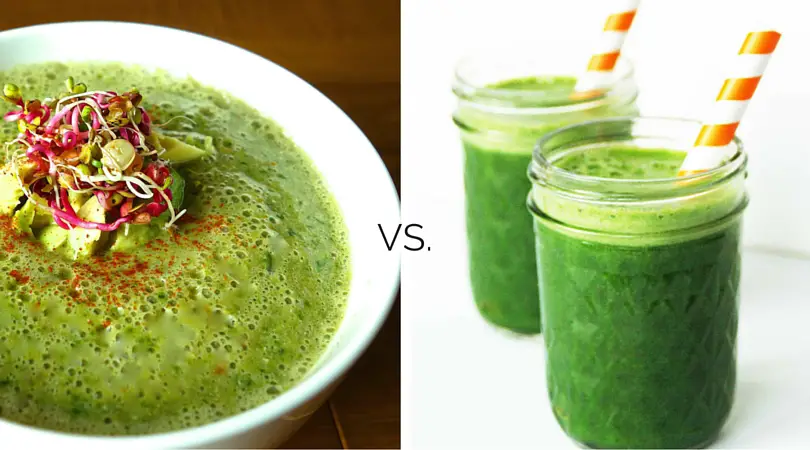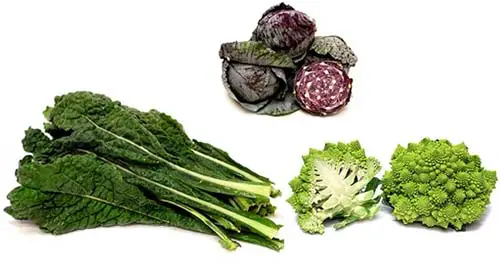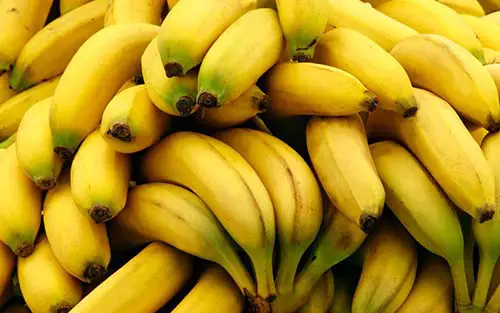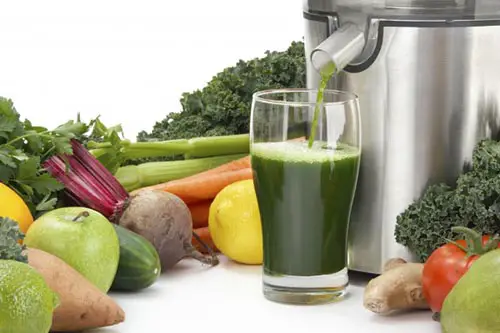Medically review by Kim Langdon

Smoothies and juices, especially the green kind, have taken over the wellness world (and Instagram) by storm and have become the poster children for health and vitality.
They are portable, quick to make and packed with nutrients, including hidden veggies. It's hard not to fall in love with these delicious liquid meals.
Lately though, we've started seeing a lot of smoothies disguised as soups, served in bowls with a spoon, and garnished with things like goji berries and nut butter.
If you're going to pull out a spoon and tuck into a bowl of smoothie, why not eat more soups?
Well made soups are as nutritious and delicious and in many ways better for you. From what we can tell, souping could become the new juicing.
Raw isn't always better
While it's not entirely unheard of to add steamed greens to your morning smoothie, the more common trend leans toward raw vegetables.
Kale, spinach, arugula - you name it. If it's green and leafy, we're GAME.
In the case of juicing, the matter is always raw.
While raw is often seen as preferable to cooked when it comes to getting in our greens, turns out, sometimes they're better off with a little heat involved.
This is especially true with cruciferous veggies.

When it comes right down to it, most vegetables benefit from being cooked.
?This is because heat breaks down the cell walls which makes the nutrients inside easier for the body to absorb.
While too much heat and long cooking times can reduce nutrition, important minerals, and vitamins, short and sweet steam can actually increase the good stuff.
For example, when you eat steamed or wilted spinach, you will absorb higher levels of vitamins A and E, protein, zinc, thiamin, calcium, and iron all the while eliminating oxalic acid which can impact calcium absorption and cause kidney stones.
Oh, and the big one: fiber.
Juicing fruits and veggies often removes the fiber making nutrition slightly inferior to their cooked counterparts.
Other vegetables that benefit from being cooked are most leafy greens (kale, we're talking about you!), carrots, tomatoes, broccoli, and cauliflower.
The lycopene content in tomatoes?
Well, you're not getting much without a little heat, and this is an incredibly powerful antioxidant you want to take advantage of.
Speaking of all these different veggies...
Souping allows more variety

Whilst preparing any meal, we should pay attention to optimizing the nutritional quality of those meals.
We should seek out to eat as wide a variety of foods as we can in order to receive all the vitamins and minerals our bodies need.
Every fruit and vegetable on the planet has its benefits, but eating the same things over and over doesn't allow our bodies to get a full range of nutrients.
Smoothies are particularly limiting as we often don't think to add in things like cruciferous Brussel sprouts and red cabbage or starchy vegetables like sweet potatoes.
With juicing, even the addition of these veggies strips them of their fiber.
Moreover, we seldom add fresh or dried herbs with benefits. Long story short; don't rob yourself of nutrition!
Soup allows for just about any vegetable, spice, and herb to be added to the mix.
Soup has less sugar
Inherently, soup has less sugar.
This is because we generally don't need to add anything sweet to our creamy broccoli soup or a naturally sweet curried carrot blend.
You also don't see many bananas in soup recipes, and this is probably a good thing.

Not that there's anything wrong with bananas, but loading in the fruits can make it easy to down a whole lot of sugar really fast without realizing its impact on your blood sugar and energy levels.
While juicing at home allows you to be in control of the fruit and sugar content, many store-bought juices contain 3-4 fruits worth of sugar, making it just as sweet as a soda.
Without any protein or fat to lessen the blow, that sugar is ALL in our blood as soon as we drink it.
We just can't deny that natural sugar acts the same way as refined sugar does in the body for the most part.
Soup simply doesn't have mangos, bananas, pineapple or dates hiding out - all of which have their benefits but should also be eaten in moderation.
Juicing is expensive
Good quality juice from a store or a fancy-schmancy juice bar will run you up about as much money as if you were ordering cocktails out on the town.

While some people live in tropical climates with affordable access to quality fruits and veggies, most of us are bound by the seasons in terms of produce and dishing out money just to turn our produce into juice doesn't fit everyone's lifestyle.
Soup allows you to stretch your dollar far.
It's versatile and you can use anything you like, it's easily frozen to use your leftovers later, and you'll get a LOT more volume in your meals which will overall lead to you feeling satisfied and full after meals.
Hot food has benefits
From actual temperature to spice levels, hot is good.
Our bodies crave a balance of foods, and that yin and yang apply to the warmth of our meals.
For one, hot meals including cooked vegetables are often easier to digest, especially compared to raw foods.

According to Ayurveda, warm foods can be grounding and help you to restore balance.
Furthermore, warm foods are believed to ignite the digestive fire, furthering the case for soup being good for the gut.
Next time you're thinking of a juice cleanse, opt for a soup cleanse instead.
Bone broth heals

And let's face it... nobody wants a splash of bone broth in their strawberry-banana smoothie or morning green juice.
More power to you if you do, but it's better suited for a warming, hearty bowl of soup.
It can easily be used on its own or as a flavorful liquid for any blended soup, and it offers up loads of benefits:
- Collagen helps strengthen skin, hair, and nails
- Glycine (an amino acid) helps the body to detox, digest, and heal from wounds
- Glutamine (another amino acid) is vital to gut health and immune regulation
- Minerals from bone broth are easy for the body to absorb and use
- Gelatin helps to heal leaky gut and maintain optimal gut health
- Protein helps repair connective tissue which is good for joints, bones, and even preventing injury
Why you should start souping
All in all, soup is just a warm smoothie with less added fruit. It's a blank canvas for whatever you'd like, and it's much easier to add healthy fats and satiating protein without the use of powders and the like.
Besides the variety of foods you can add to soup, you also have the liberty of choosing a texture and complex flavor profiles.
Finally, soup is just as portable as a green juice, so there's no excuse not to take it on the go in the morning or pack a thermos for lunch.
If you're not quite feeling warm soup (hello, Summer!) there are plenty of chilled soup recipes that might feel a little more like your beloved green juice.
Think gazpacho with fresh watermelon, avocado and watercress, and cool blended cucumber soup.
What are your favorite soup recipes? Share with us!
This article was fact checked for accuracy by Dr. Kim Langdon, MD. As always, this is not personal medical advice and we recommend that you talk with your doctor.
References
Kimberly Langdon M.D. is a retired University-trained obstetrician/gynecologist with 19-years of clinical experience. She delivered over 2000 babies to mothers in a suburban Midwestern community.


YES yes yes! This is a fantastic read and so needed to be said! I agreen 110%! *bravo!*
We’re so happy you’re on board!! All the good greens.